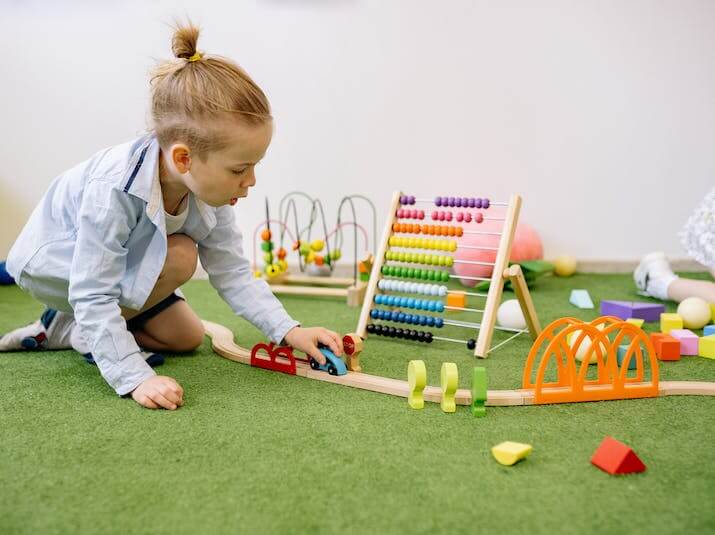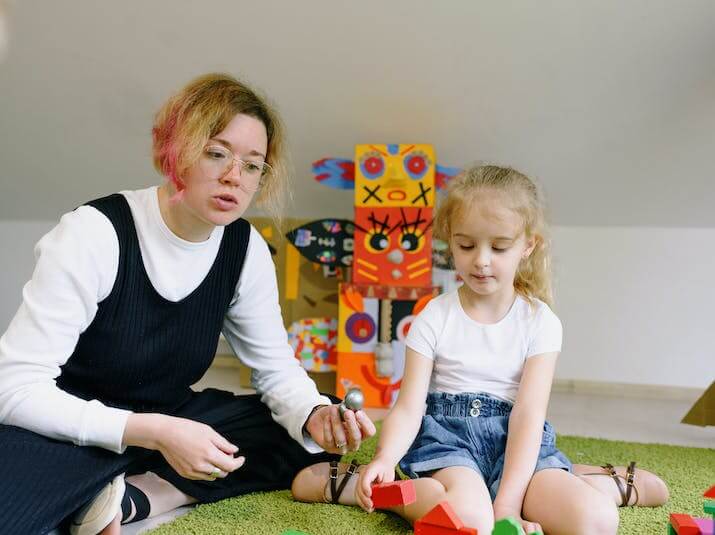Play therapy for children and its benefits
‘’The primary goal of play therapy is to enable clients who cannot express themselves to open up and express their feelings through play.’’
WHAT IS PLAY THERAPY?
The Association of play therapy defines play therapy as ‘’the systematic use of a theoretical model to establish an interpersonal process wherein trained play therapists use the therapeutic powers of play to help clients prevent and resolve psychosocial difficulties’’.
Simply put, play therapy is a form of counselling or psychotherapy in which play is used as a medium to help children express or communicate their emotional and mental challenges.
WHO NEEDS PLAY THERAPY?
Generally, play therapy is for children between the ages of 3 and 12. Children with developmental disorders, behavioral problems, and poor academic and social development are more likely to struggle with expressing their thoughts and emotions.
Conditions requiring play therapy include:
- Autism spectrum disorder (ASD)
- Attention deficit hyperactivity disorder (ADHD)
- Post-traumatic stress disorder(PTSD). This includes children who have encountered trauma such as sexual, mental, physical, or emotional abuse, parental divorce, grief, or crisis.
- Anxiety disorders
- Depression

HOW IS IT DONE?
Play therapy is a structured, theoretical, evidence-based treatment supervised by a qualified professional. During play therapy, a licensed mental health provider with specialized education, training, and experience called a play therapist uses ‘play’ as a therapeutic tool to help your child.
There are two main types of play therapy, directive play therapy and non-directive play therapy. In directive play therapy, the therapist has more control of the treatment. The therapist chooses the toys or games to assess, interpret and guide the child. In non-directive play therapy, the child can choose their toys and fun while the therapist assesses and guides the child to express their feelings.
Therapy sessions usually last up to an hour once per week, and they can be either one-on-one or group therapies involving more than one child.
Techniques in play therapy
There are various techniques in play therapy, but the method of choice differs for each child. The critical concept in play therapy is providing a relaxed, comfortable, and safe environment for the child to allow them to express themselves. Here are some standard techniques used in play therapy.
- Using building blocks
- Using arts and craft
- Figurine/Doll play
- Storytelling
- Role-play
- Music and dance
- Creative Visualization
- Board or card games
- Hide-and-seek
- Sand and water play
- LEGO play
The therapist uses these tools to create a fun and comfortable environment where the child unconsciously tells how they feel and what they may be struggling with.
BENEFITS OF PLAY THERAPY
Many parents have criticized and dismissed the idea of using play as a medium for treatment over the years. Still, Researchers have conducted studies to explore the benefit and effectiveness of play therapy, and all have concluded that play therapy has positively impacted most clients.
A research study conducted in 2005 to assess the efficacy of play therapy in children with emotional and mental challenges revealed that using play therapy produces significant positive effects across children between 3-12.
According to Play Therapy UK (PTUK), ‘’71% of the children in play therapy show a positive change’’.
We can never disregard that play is the natural language and the reflection of what is truly within a child. Play therapy provides a safe and comfortable environment where the child feels listened to and understood, and all their feelings are validated.
Here are the benefits derived from play therapy.
- Some children act erratically because of certain situations and experiences they have encountered. Play therapy helps children understand these situations and guides them in resolving their conflicts.
- The child learns to communicate with others effectively and express their feelings.
- Play therapy reduces stress, alleviates anxiety, and improves depression through controlled fun activities.
- It helps the child develop coping strategies.
- Play therapy modifies or decreases undesirable behaviors.
- Play therapy helps the child to develop creative problem-solving abilities.
- It improves children’s social life by teaching them how to relate well to others.


0 Comments